5 Ways Open Mic Nights Do Music Education Better
Music Performance Design Practice and Managing Music Performance Anxiety
I feel sorry for a culture that depends too much on delegating its musical expression to professionals. It is fine to have heroes, but we should do our own singing first, even if it is never heard beyond the shower curtain.
About a year ago I found myself walking to Fetch brewery in Whitehall, Michigan, where I had seen that there was an open mic night. I had never attended an open mic night before, and I don't know that I had ever even been to a bar alone before, but I headed in that direction because I had a feeling that I was supposed to. If you are working through the other articles in The Musician Coach and opening yourself to what is around you, then this compulsion that I felt may not seem unusual to you, as you will, or probably have had, similar experiences.
Once at open mic night, I stood in the back and watched a few musicians go through the process of performancing. After walking up to the microphone with their guitar, or ukulele, or tenor saxophone, or even a Native American flute, the host would check their sound levels, help them to be comfortable, and stand by to assist during the performance if needed. The "audience" consisted of the other musicians waiting to perform and the regulars having a beer. Everyone was socializing, mostly at a respectful level to not disrupt the artist. Their attention and applause was in direct relation to their reaction to the performance. All artists were supported positively, but the type and level of response also provided authentic feedback on what performance elements moved the listeners.
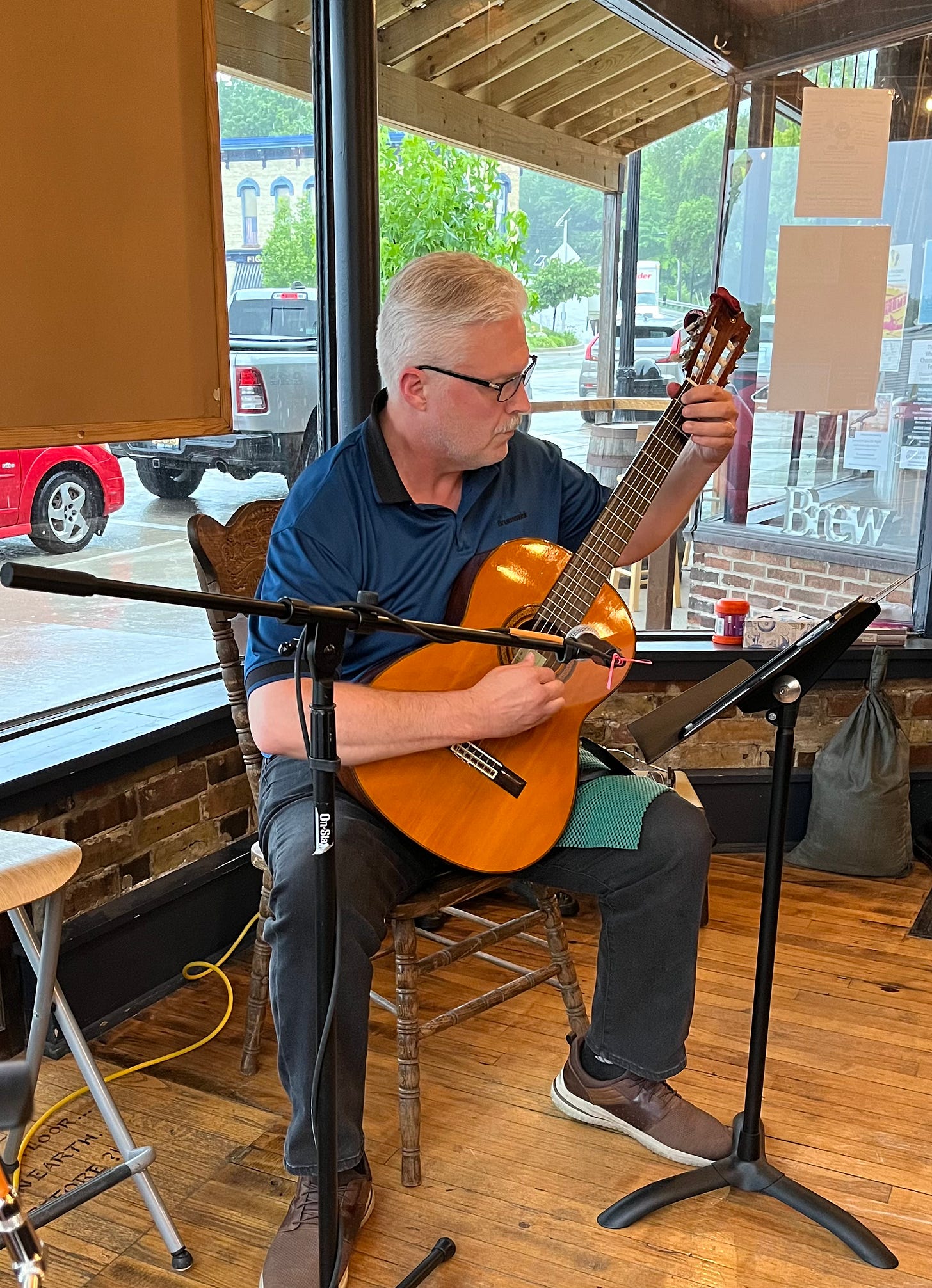
During a break in between performers a woman named Penny who had performed on ukulele earlier came up to me and introduced herself. She said that she had felt that she was supposed to come talk to me, and this began my relationship with Penny and my year of attending, observing, and learning from her experiences and the culture at three different open mic night venues in Michigan and Georgia. An article on Penny's musical journey is forthcoming. Here I would like to share what I, as a music educator who having spent decades in institutional music education, experienced while observing musicians, audiences, hosts, managers, sound designers, and business owners who contribute to the availability of these events.
5 Things We Need More of in Music Education
1 A Supportive Environment
Over the last 20 years I have had the pleasure of teaching music to many adults, both in private lessons and in small and large ensembles, which has helped to broaden my vision for music education. One adult student taking jazz saxophone lessons with me worked as a forensic psychologist in a prison serving as a counselor. One time I had to reschedule our lesson due to a conflict with "juries", and I still vividly remember his response. "What did you call it?" he gasped. I explained that juries were the final playing exam at the end of the semester, and then he was even more shocked that we would use such a term for an educational process. In his professional world the word "jury" has references to incarceration and death. He then asked, "What else do you do in school music with similar connotations?" Even if we justify the use of the word "jury" in a music education context, and justify the practice of juries which simulates audition and competition settings, what does the use of the words juries, barriers, exams, hearings, adjudication, and similar terms imply about our goals and processes in music education? My experiences as a student, and now as a teacher hearing from my students, is that an environment of competition overrides the spirit of collaboration, and with competition comes working towards the impossible goal of meeting the multiple subjective perspectives of everyone involved. Is it any wonder in this environment that musicians develop anxieties and depression?
Contrast this with Penny Rushing's approach to managing and hosting the open mic night at Sawyer's in Montague, Michigan:
I try to make sure they know everyone is welcome and we are excited they are here to share their talent — no matter what level they’re at in their musical journey. I try to chat with them a little bit as I’m getting them set up to help them relax a little bit, have them play their instrument a few times and say a few words into the mic to get the volume levels right, and adjust the mixer as needed to help their instrument and voice come through clearly. I introduce people when they come up, and after their performance to invite another round of applause.
If anyone is feeling nervous, I let them know it’s ok. We all get nervous, and I try to throw some humor into the situation — that nervous feeling is what lets us know we are alive, right?!
And remind them that every time they do it, they’ll learn a little more and gain more experience, and it’ll get easier. They’re awesome for taking that leap to put themselves out there and be vulnerable… it’s a great feeling as the host to see people grow, to be excited to strive to learn more and learn to fly as a musician!
The reality is that the majority of our music students do not audition or compete, and there are not even close to enough of those types of jobs for all of our music students. A music degree filled with barriers and juries might meet the needs of some looking to win positions in music organizations, but what about the other everyday opportunities to bring live music into a community, to build relationships and bring people together? There are opportunities to be musical through developing your own musical interests independent other’s opinions, and it doesn't always require an expensive degree.
2 The Autonomy to Make Your Own Decisions
It is possible to go through twenty or more years of formal music training without having the opportunity or being challenged to go through the process of choosing music for a performance. Music students likely will not design music performance for meaning or purpose or consider how music can influence and lift the human spirit. There is an “unwritten curriculum” in school music that includes “learning” what is “good music” and “bad music” which is, of course, subjective. One can never be fully “successful” in designing a program because someone is always ready to tell you that you are wrong. Not only does this environment discourage creative programming, it creates an environment of doubt in one’s ability to design a program. Is it any wonder that our music students have issues with anxiety? Performing at an open mic night is fully autonomous. You decide when you are ready to perform rather than being told that you must be ready to perform on a specific date. You decide your program. You evaluate the response to the program and make decisions on how to improve for the next performance. This is not to take away from the importance and benefits of working with teachers, but rather to embrace available opportunities to develop one’s musicianship based on individual meaning and purpose, and to share their unique and authentic self.
3 The Opportunity to Communicate Authentically With an Audience
The listeners at an open mic night have made a choice to be in the room with you. They aren't receiving credit, they haven't been told that they have to attend, and they can walk out at any time. They can choose to listen to the music or continue a conversation. I went with two friends to hear Penny play a two hour set on ukulele at Sawyer's brewery a couple of weeks ago. My friends, currently learning ukulele, were very upset by the brewery customers continuing their conversations while Penny sang and played her uke. I found this odd as we were in a bar, and this is the performing environment. For someone trained in a school setting where the audience is trained to be quiet, I understand that this can appear as being rude. However, this is the setting for many working musicians, and here is an opportunity to learn in an authentic performance environment. Consider the growth in performance flexibility from working to develop the ability to focus on your performance while embracing the distractions of a live and active environment. Then, learning to shift the focus to your audience through observing and listening, and working to reach a performance level where you can interact, grow, and create as part of building a relationship with your audience. Is it possible that building these skills could reduce performance anxiety?
4 Having Multiple Performance Opportunities
School music is scheduled based on an academic calendar rather than musical goals. Open mic nights allow for you to prepare for as long as needed, make your own decision for when you are ready to perform, and then perform the same set multiple times, at the same or many different venues. Multiple performances of the same material are part of musical development in most areas of the music business, and high level musical experiences come from the experimentation and creativity that come from a comfort level derived from multiple performances. Preparation for high level performance experiences happens over years, rather than the 6-12 weeks for academic settings and 1-4 weeks for professional concert organizations. Though the academic calendar prepares musicians for playing in organizations that have similar cycles such as an orchestra, developing as a creative and autonomous individual musician calls for setting and working towards goals on a person centered schedule rather than an organizational schedule. Open mic nights allow for one to experiment and improve on skills and ideas conceptualized by the individual. More opportunities to perform puts less pressure, and therefore less anxiety, on the performer to be perfect as for a one shot performance.
5 You Have to Look Your Audience in the Eye
Though I had listed “You look your audience in the eye” first in this article, Bill suggested that it be moved to last. Not because it isn't important, but because the thought of making eye contact with your audience is so scary for some that he was concerned that one might see the heading and not continue to read the article (are you still here?). In a concert or recital hall it is easy to look over your audience, and the distance can make eye contact less personal. If the hall is dark, and/or there are spotlights, it is almost impossible to connect on a visual level. But in an open mic night you may be only a couple of feet away and on the same level as your audience. You can’t help but look your audience in the eye. A gaze too long is awkward, but to pass over someone’s attentive gaze is missing an opportunity to connect with your audience. A little practice and you learn the art of a quick glance with a smile, and the potential for deeper human connection in music performance. With experience you learn that an open heart and the human connection is what manages performance anxiety.
To be musical is to be human, and there is and always will be a need for music in daily life. Live music has the potential to be particularly engaging and uniting. In a changing and increasingly divisive world, open mic nights are an opportunity to authentically connect with an audience, practice being vulnerable, and receive real feedback. Open mic nights can be hosted at community venues, parks, and even private residences. There is also potential to practice sound design, lighting, and audio/video recording of which in my college experiences were limited to only the few allowed into special programs rather than a part of the general curriculum for all music students.
In addition to personally considering hosting or participating in an open mic night, perhaps another possibility to explore is how we can emulate comparable experiences of developing individual creativity, authentic musicianship, and open communication with an audience in academic settings. Such skills are beneficial at all levels of music performance, from presenting a school band concert to planning a season for a symphony orchestra.
In 2022 Samuel Tolbert and Jordan Morrison as leaders of The Black Schwob Society were inspired to begin an open mic type event on the campus of Columbus State University that they call Play and Tell. Events are held twice a semester for students to share what they appreciate about their music, of any genre, in a relaxed and supportive environment. The musicians are encouraged to interact with their audience, and the audience is encouraged to respond authentically, including applauding whenever they feel inspired to. The event is open to all students, not just music majors, and they are currently working towards finding other ways for musicians and audience to engage as part of the performances.
I attended one of the Play and Tell events last spring on the Columbus State University campus. I observed performances designed by students that included video, original compositions, student arrangements, and traditional chamber music all presented outside in front of the music building in an informal and supportive environment. The atmosphere was fun, celebratory, engaging, interactive, and inviting, different than any experience I had as a music student.
The formation of this event by students, and the specific use of language chosen by the student leaders including all students not just music majors, any music genre, their own music, and interacting with the audience demonstrates an awareness of a need for such activities, and possibly a craving for these types of personally meaningful and interactive musical experiences. Whether musicians are attending open mic nights available in the community, creating their own on campuses, or hosting such events at their homes, the opportunity to practice creative performance design and connecting with an audience broadens the scope of possibility for these musicians.
Challenge Activities
Growth and achievement come from the willingness to be a little vulnerable and putting yourself just a little bit outside of your comfort zone.
1. Find and attend an open mic night.
2. Take note of what the audience reacts to, engages in, and rewards. Write your findings in your journal, and/or share below, and note any of those things that you can begin to add to your performances.
3. Begin preparing one song, on any instrument in your comfort zone, or an instrument you have always wanted to learn. If a melodic instrument, consider adding a friend, or friends, or looping pedal, or recorded background. Limit yourself to one song, or what you are comfortable with, at first so as to not get overwhelmed. Create a performance based on what is meaningful to you for the purpose of connecting with an audience.
4. Give yourself plenty of time. Spend a few minutes each day to allow for your creativity to work in between sessions, and plan to perform your open mic night song somewhere, for someone, even if it is first in your own home for your pet. Share your experience in the comments below to create a community of encouragement, and/or keep notes in your journal about your overall development through this process.
5. If these activities seem to be outside your realm of comfort, ask yourself if you are open to new experiences and seeing things in a different way. Are you willing to be vulnerable and step just outside of your comfort zone for new and meaningful experiences? Check out these articles for developing openness through developing gratitude and awe.
Gratitude Exercises
Awe Exercises
Then try again. Go back to Step 1 (did you skip this one and not attend an open mic nite?). It might change your world - it did for me.


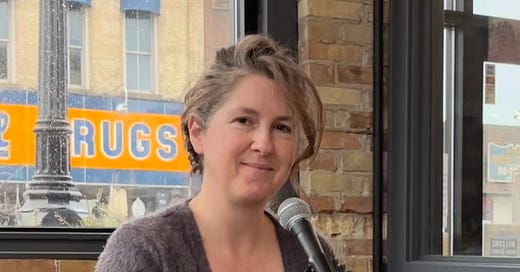





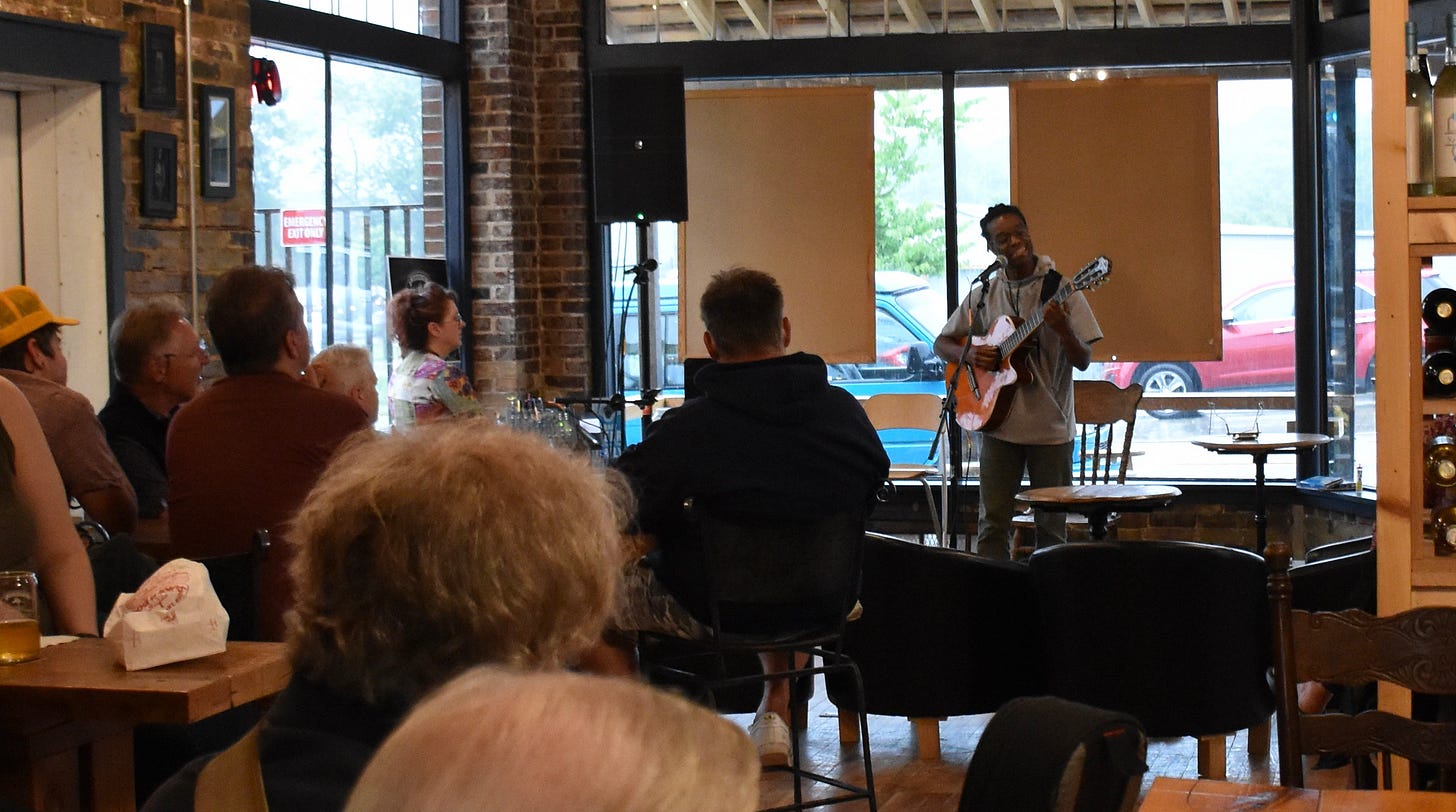
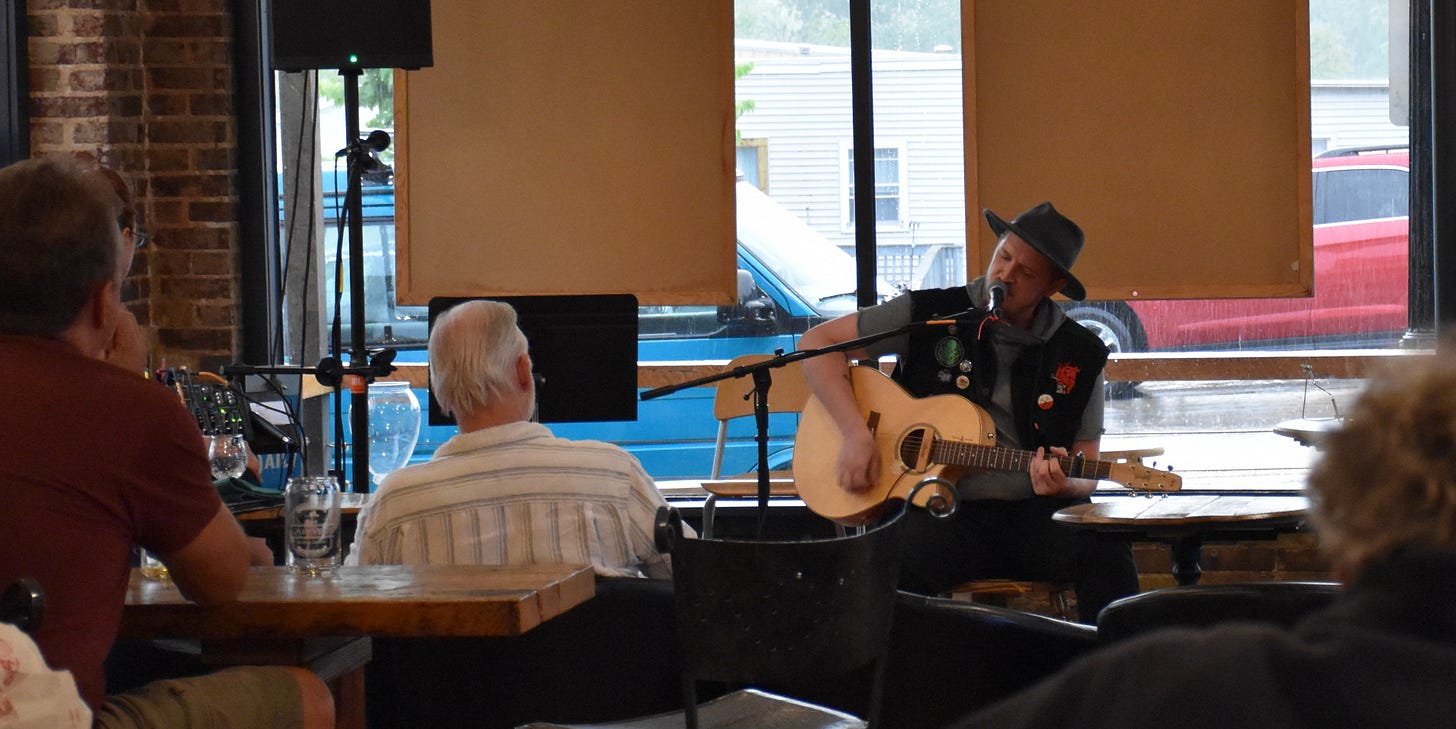
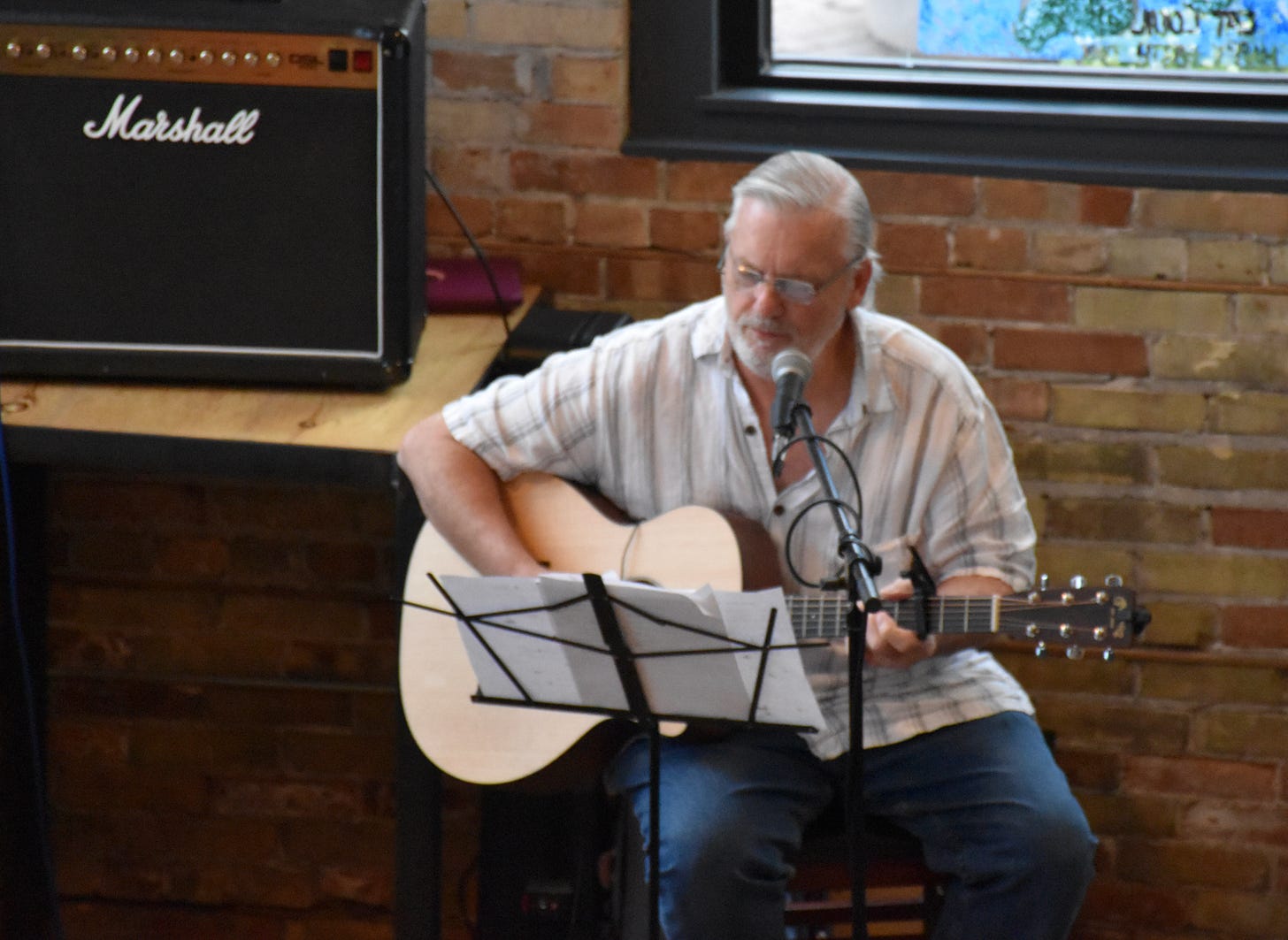
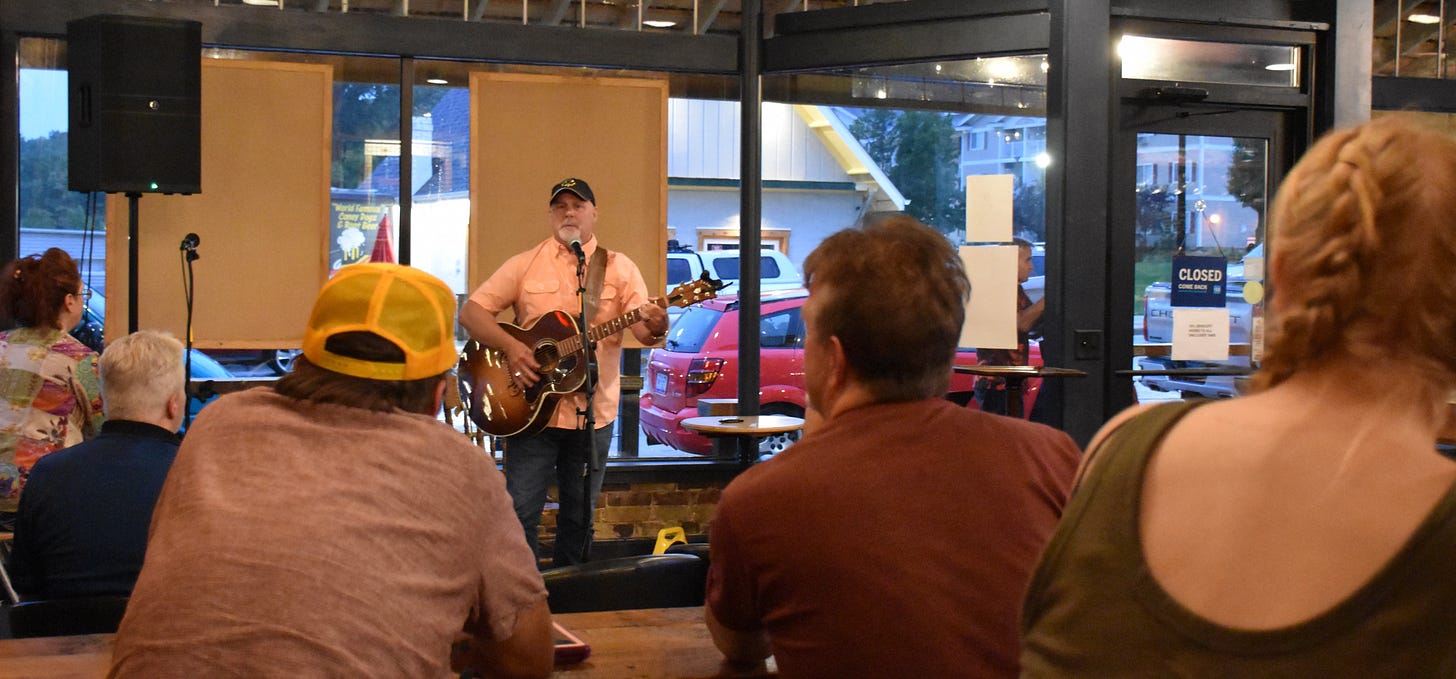

Well written and good advice outside of the music world as well.
Another wonderfully insightful look at what it is to be a musician. I am in the midst of stepping outside my comfort zone in a big way by going back to school after many years away. It feels invigorating!